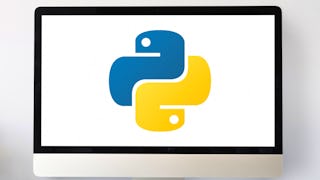![[Featured Image] Two flight attendants carry their bags and talk while walking through an airport.](https://images.ctfassets.net/wp1lcwdav1p1/655Tnfe8kgsziUerdz9zVe/0d048dcc619fdd1acb0309e426e0c4e9/GettyImages-1408233041.jpg?w=330&h=216&q=60&fit=fill&f=faces&fm=jpg&fl=progressive)
What Jobs Pay $25 an Hour Without a Degree?
While having a degree can help you find a high-paying career, it's not always necessary. From earning a license to on-the-job training, discover other ways to start a career. What jobs pay $25 an hour without a degree? Read on to explore some options.
April 10, 2024
Article

![[Featured image] A building inspector wearing a hard hat holds a clipboard as they inspect a building.](https://images.ctfassets.net/wp1lcwdav1p1/5ptHwX4JVqXVk70s9MZQ7m/5f045b92bb10ba6a9366ad341f289958/GettyImages-1317900085.jpg?w=330&h=216&q=60&fit=fill&f=faces&fm=jpg&fl=progressive)
![[Featured Image] A smiling customer service representative wearing a headset speaks to a customer on the phone when ChatGPT is not able to answer their questions.](https://images.ctfassets.net/wp1lcwdav1p1/3VFFDkwH0Q7foyoIQw2Nng/2167342b7a21e36af0580750154185b7/GettyImages-1437821111.jpg?w=330&h=216&q=60&fit=fill&f=faces&fm=jpg&fl=progressive)



![[Featured Image] A recent college graduate sits at a computer and prepares her resume to enter the tech job market as a data analyst.](https://images.ctfassets.net/wp1lcwdav1p1/2ca2QZHzx7WsIkuJ6I74G9/1659f68aec4902358ceea0f3d830b5f6/GettyImages-1215009025.jpg?w=330&h=216&q=60&fit=fill&f=faces&fm=jpg&fl=progressive)
![[Featured Image] A head chef combines food in a commercial kitchen after learning about California jobs in demand and applying their training and passion for culinary arts.](https://images.ctfassets.net/wp1lcwdav1p1/1GJcDhisxTY5IUqYTM46nv/b55049703c856db66099c59f26749f90/GettyImages-144869230.jpg?w=330&h=216&q=60&fit=fill&f=faces&fm=jpg&fl=progressive)
![[Featured Image] A programmer sits at home, talks on the phone, and uses her laptop to research ads for R programming jobs.](https://images.ctfassets.net/wp1lcwdav1p1/3suHank5GoGaejuwiNzQWx/d798555864b5c8f0b06758216e9f61e0/GettyImages-1284106276.jpg?w=330&h=216&q=60&fit=fill&f=faces&fm=jpg&fl=progressive)
![[Featured image] A graduate in their cap and gown holds their diploma and smiles after getting their bachelor’s degree with their classmates.](https://images.ctfassets.net/wp1lcwdav1p1/4O3Ok5BLzpr60K1X5q8Qtn/26b63d93dad9107a82ce61884f949e75/GettyImages-512746852.jpg?w=330&h=216&q=60&fit=fill&f=faces&fm=jpg&fl=progressive)
![[Featured Image] An IT specialist without a degree chats virtually with a customer from their office.](https://images.ctfassets.net/wp1lcwdav1p1/1XUJwM6EeMUvYCRMrIE6n3/3ee9acd4aa406ac548a0b6623a6dd8f2/GettyImages-1346576524.jpg?w=330&h=216&q=60&fit=fill&f=faces&fm=jpg&fl=progressive)
![[Featured image] A nurse educator, one of the highest-paying public health jobs, speaks to students in a classroom.](https://images.ctfassets.net/wp1lcwdav1p1/2zb1aejuq0pp3gFdLQY3TA/2e78bbdcf32891ffcb8ca2c1e0c9f657/GettyImages-1441981174.jpg?w=330&h=216&q=60&fit=fill&f=faces&fm=jpg&fl=progressive)
![[Featured Image] A professional meets and shakes hands with potential customers as part of her cybersecurity sales job.](https://images.ctfassets.net/wp1lcwdav1p1/7LguNW4vFSeKJzB560TIum/ac6092b7867923ff45accbcc0d26e0f5/GettyImages-525640005.jpg?w=330&h=216&q=60&fit=fill&f=faces&fm=jpg&fl=progressive)
![[Featured Image] Two cyber threat analysts carry folders and walk from the parking lot to their CIA cybersecurity jobs.](https://images.ctfassets.net/wp1lcwdav1p1/1c3u86cQzwMXrnbpaUibpz/2011f0dd8c682899338cfb88449b4420/GettyImages-1167923503.jpg?w=330&h=216&q=60&fit=fill&f=faces&fm=jpg&fl=progressive)
![[Featured Image] A data scientist wearing glasses and a striped shirt working in front of several computer monitors.](https://images.ctfassets.net/wp1lcwdav1p1/6tr5J3qa6qxmgHylyhoC5f/e80d2a556950be2c818fb8fc38e4aee9/GettyImages-1451309461.jpg?w=330&h=216&q=60&fit=fill&f=faces&fm=jpg&fl=progressive)
